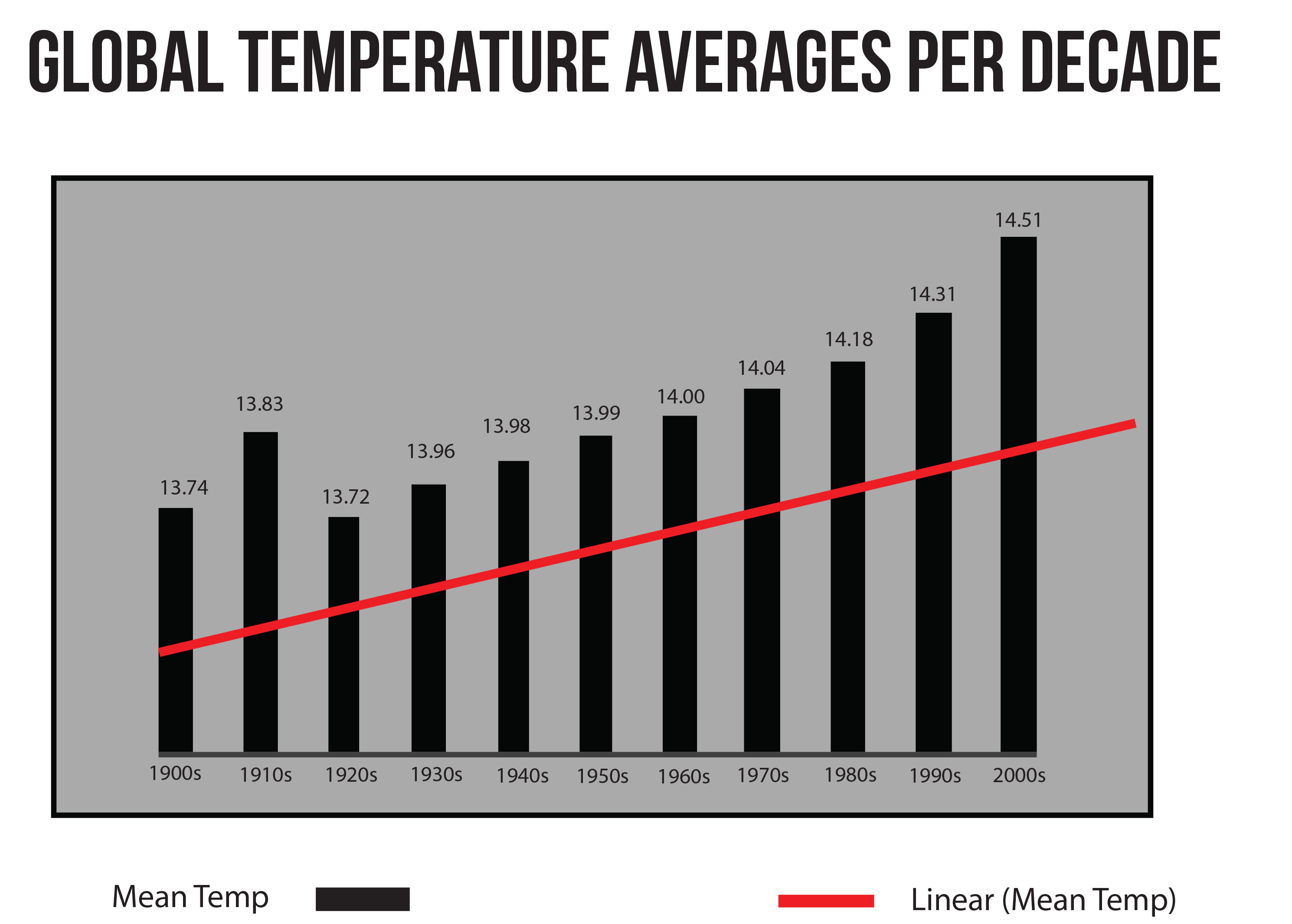Amber Moore
ambmoore@lc.edu
Climate change is not just a political debate topic or a possibility, it’s a jarring reality that the world continues to ignore and is consequently running out of time to act against. Global warming has been at large in the last century especially due to human activities such as the consistent burning of fossil fuels, deforestation, and animal agriculture.
The UN Intergovernmental Panel on Climate Change (IPCC) warned in a 2018 report that we only have about 12 years to act on climate change before its effects and consequences will be irreversible. With our current climate being roughly 1 degree Celsius warmer than the levels of the late 1800s, according to many climate scientists, we’re about half a degree away from some serious ramifications.
While 1.5 degrees doesn’t seem like a big deal, it most certainly is; a temperature rise of even just half of a degree can increase the risk of lasting and irreversible consequences such as coastal and river flooding, severe weather, forest fires, droughts, and poverty among millions of people.
Despite how urgent of an issue this is, even the most ambitious of endeavors to take action against climate change, such as the Paris Climate Agreement, wouldn’t and won’t be enough. The Agreement, initially joined by the U.S. under the Obama administration, entails that each nation involved—195, to be exact—is to strive for a limitation in greenhouse gas emissions. However, the Agreement really isn’t striving for enough; its intentions are to limit global warming to 2 degrees Celsius by 2100, which, honestly, would be far too late.
The most point-blank and simple solution would be to quit burning so much fossil fuel and switch to cleaner sources of energy. Unfortunately, it’s just not that easy. What stands in the way are corporations whose livelihoods, functions, and profits are prioritized at the expense of the planet.
Only 100 corporations are responsible for 71 percent of greenhouse gas emissions worldwide, yet nothing substantial is being done to adapt these companies to cleaner forms of energy.
Even though a lot of these environmental conundrums occur on a government and corporate level, our individual choices do affect the environment and can affect the future.
Recycling, reusing, consuming less of what we don’t need in the first place, and using less energy consuming ways of transport (such as walking, cycling, public transport, etc.) are the easiest ways we can decrease contribution to environmental damage. Alongside that, eating less meat and dairy is is one of the best ways to reduce our carbon footprint, as animal agriculture largely contributes to greenhouse gas emissions. Collectively reducing our intake means reducing demand, which in turn makes for less production.
Most importantly though, voting for the right people in elections should be prioritized. It’s crucial that we have people in office—whether it’s on a federal or state level—who care about the wellbeing of the environment and will take the necessary measures to hold corporations accountable for what they do.
In modern civilization, we continue to treat climate change as something that might happen or could happen, but it’s happening right now. In a few decades or so when our need to dominate and push Earth’s limits catches up with us, we’ll have no choice but to wonder why we didn’t act sooner when the answers were right in front of our faces. The best we can do as individuals is shape our choices to align with our desire to be able to live comfortably on this planet.




